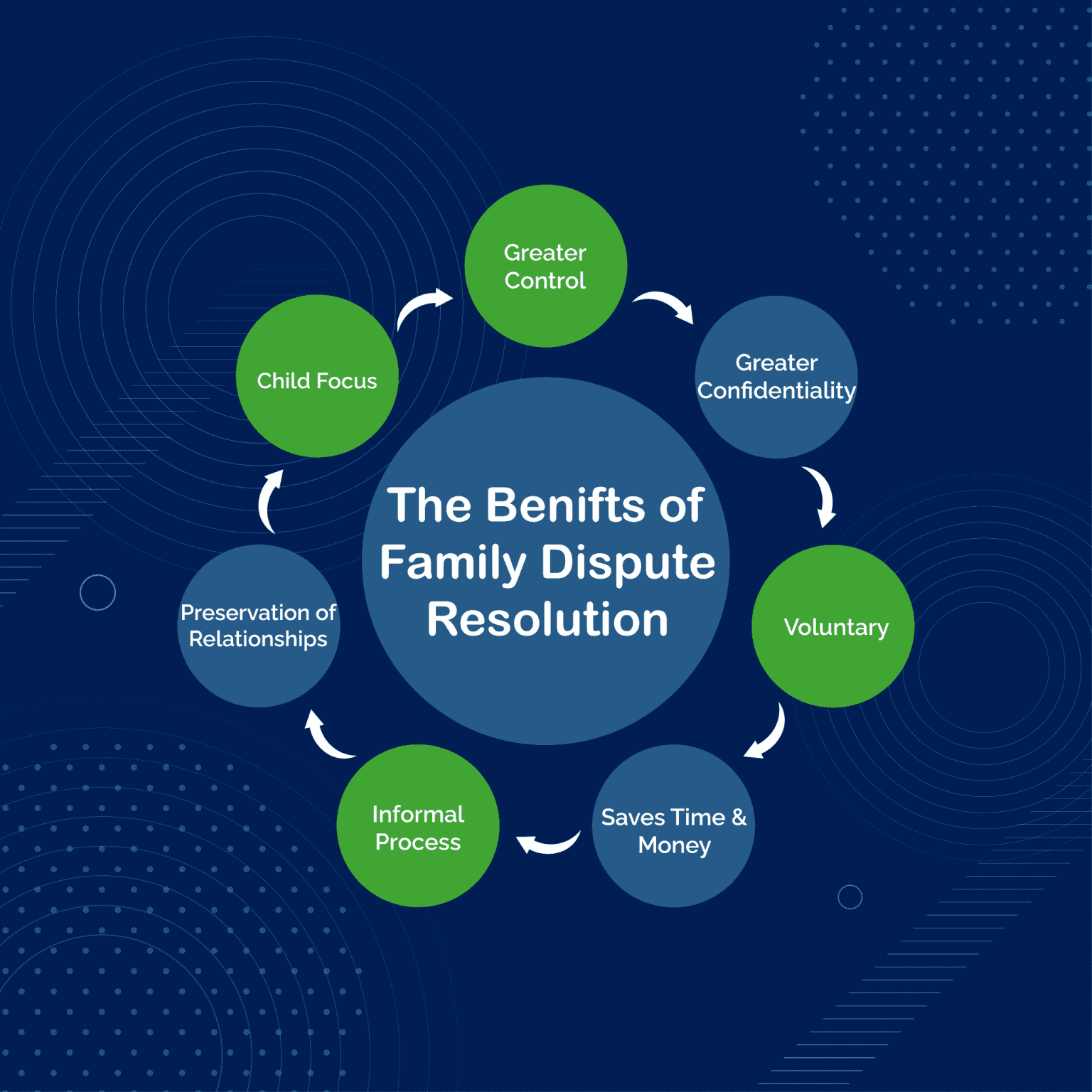Services
Mediation and Family Dispute Resolution
Mediation and Family Dispute Resolution
What is Family Dispute Resolution (FDR)?
Family Dispute Resolution, or FDR as it is more commonly called, is a niche and specialised form of mediation specific to separated families which deals with children’s matters and/or financial matters. The independent Family Dispute Resolution Practitioner (FDRP) facilitates your mediation in an impartial and non-judgemental manner. Through FDR, families affected by separation are able to narrow their disputed issues, discuss and generate possible outcomes for their family, and ultimately reach agreements to move forward with. Based on the premise that all families are unique and are best suited to making decisions for Their Own family, the FDRP will guide your session/s, however will not give legal advice or impose outcomes on the family.
Child Inclusive Practice (CIP)
Where deemed appropriate by your FDRP, and with the consent of both parents, your FDR process may include Child Inclusive Practice (CIP). This is where an experienced Child Consultant will meet with your child/ren any To Discuss concerns your child/ren might have regarding your separation. Our Child Consultants create a safe and comfortable environment, which most children find therapeutic. Pending your child/ren’s consent, the Consultant may then share feedback with the parents as well as making recommendations, within the FDR process. Your FDRP will then assist you to use this acquired information to assist you in your decision-making.
Collaborative Practice
At Ray’s Room, we believe in, and advocate for, collaborative practice between all relevant professionals. Similar to the old adage that “it takes a village to raise a child”, in many cases it takes the support of various professionals to guide families effectively through a separation. It is for this reason that, where beneficial, our FDRPs work collaboratively with therapists, child consultants and solicitors to ensure families experience a supported FDR process and reach the best outcomes. All of our practitioners are open to initiating and receiving cross-referrals and have a network of trusted professionals if required.


FAQ
Once you’ve made the choice to separate, navigating what comes next can be bewildering and daunting. We invite you to reach out to us at Ray’s Room for assistance during this process and to connect you with relevant services. We can aid you in identifying the best approach for your unique circumstances. It’s also recommended that all clients seek their own legal advice at some stage.
Should your partner not engage in the FDR process while you’re in the midst of separation and you have children, our Family Dispute Resolution Practitioner might provide you with a 60i certificate. This certificate enables you to apply to the Court for parenting orders. If you’re separating without children and your situation pertains solely to property or financial concerns, it’s advised to seek legal advice if the other party opts not to partake in FDR.
The initial appointment with your FDR Practitioner is referred to as a Pre-mediation assessment. This one-on-one session with your assigned practitioner, lasting up to 1.5 hours, serves to evaluate the appropriateness of Family Dispute Resolution (FDR) for your situation and its potential to achieve desired outcomes. Our practitioners are bound by the FDRP Regulations, which establish objective factors to consider when determining if mediation is suitable in your specific situation.
In certain cases, both the FDR Practitioner (mediator) and the other party can agree to allow additional individuals, such as lawyers or support persons, to be present during mediation sessions. Our practitioners are experienced in providing this hybrid form of FDR. This, however, must be discussed, consented to and arranged beforehand. Kindly communicate with your FDR Practitioner if you wish to explore this option.
Upon expressing interest in mediation, our practitioners conduct a screening process to assess your situation, your ex-partner, and the level of safety involved. We are able to alter our process to make it more suitable to your situation and to make every one involved feel safe and heard eg shuttle mediation whereby you don’t speak directly to, or see, your ex-partner. If mediation isn’t suitable or safe, we can issue a Section 60I certificate. Additionally, we can refer you to support services, including counselling and domestic violence support groups.
- Address inquiries about family mediation process, costs, and timing.
- Complete your individual pre-mediation assessment session with your allocated FDRP
- Complete your individual pre-mediation assessment session with your allocated FDRP
- We contact the other party to engage in the FDR process. The other party will then complete his/her pre-mediation assessment session.
- Set a date, venue, and provide a formal Agreement to Mediate
- After signing the Agreement, partake in family mediation to work toward agreement on raised issues.
- Upon reaching agreement, we will draft a written copy of your agreement for you
Requirements for family mediation preparation will be detailed during the pre-mediation session. It is advised to think about what you want to propose in mediation eg children’s living arrangements, changeovers, holidays, financial percentage splits. For financial/property matters, your FDRP will provide you with a checklist to compile a list of assets, liabilities, valuations, and related documents.
Once agreement is achieved, even if only on certain issues, we’ll draft the terms of the agreement in a form usable for purposes such as a Parenting Plan, Consent Orders in the Family Court, or legal advice.


